Editor:
Brandon Sweet
University Communications
bulletin@uwaterloo.ca
National Indigenous Peoples Day message from the President
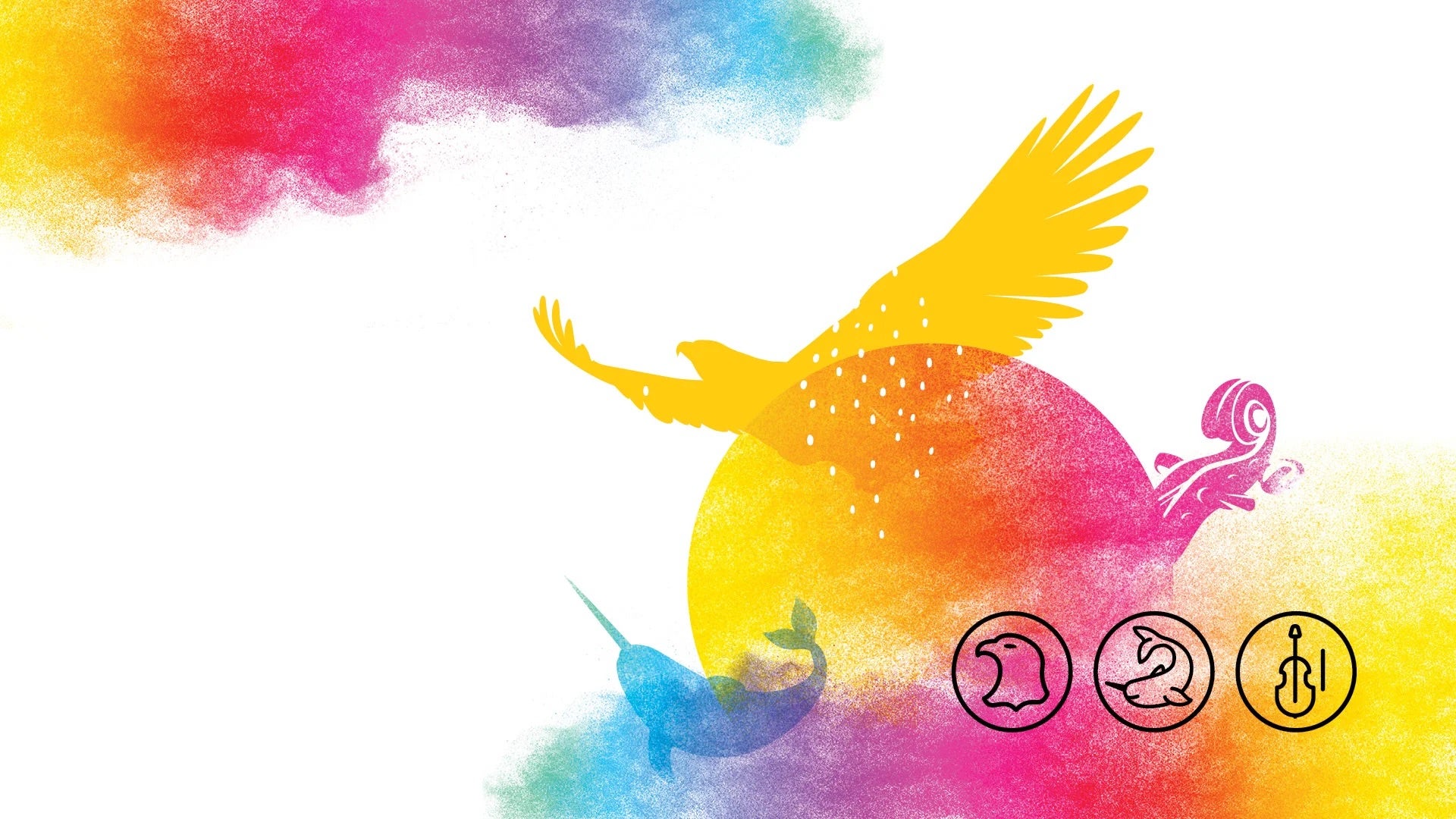
By Vivek Goel. This article was originally featured on the President's blog.
You may have noticed that at University of Waterloo events, we begin with a land acknowledgement that recognizes that much of our work takes place on the traditional territory of the Attawandaron, Anishinaabeg and Haudenosaunee peoples. We also highlight that our main campus is situated on the Haldimand Tract, the land granted to the Six Nations that includes six miles on each side of the Grand River. I often expand upon the acknowledgement by personally encouraging attendees to deepen their own understandings of Indigenous cultures and histories.
I hope these land acknowledgments encourage true reflection throughout the year. It is especially important that we intentionally take time as we celebrate National Indigenous History Month and National Indigenous Peoples Day to honour the history, heritage and diversity of First Nations, Inuit and Métis Peoples, and to celebrate the achievements of our Indigenous community members.
Last week, at each Convocation, we were privileged to have the Cedar Hill Singers open our celebrations with traditional drumming and an honour song. Indigenous Knowledge Keeper Myeengun Henry provided very moving opening and closing remarks that reminded us of our connections to the traditional landkeepers of this region.
The richness of Indigenous histories in our region, across Canada, and around the world provide true insight into where we live. The stories passed from one generation to another provide a rich tapestry of the changes to the land, its people and the climate.
Now is also an important time to reflect on Truth and Reconciliation, and acknowledge that there is still much to do in order to address the many inequalities and challenges established over generations of colonialism, intolerance and lack of action.
We recently passed the one-year anniversary of the discovery of 215 unmarked graves at the site of a Kamloops residential school. That number continues to rise as more sites are investigated. It is imperative that we continue to support members of our community who are affected by these horrific losses, and continue the important work of Truth and Reconciliation on our campuses.
Reconciling with Indigenous communities is our shared responsibility. And it is one I take very seriously as president and vice-chancellor. The University’s active work in this area takes place through research, learning, teaching, and community building, and is centralized within the Office of Indigenous Relations. We work collaboratively on- and off-campus to not only advance the goals of the 94 Calls to Action outlined in the Truth and Reconciliation Report, but also to create a long-term vision for the University that is grounded in decolonization.
The President’s Anti-Racism Taskforce’s recently published report also outlined recommendations that include decolonizing approaches to our programs and services, examining how we can incorporate Indigenous ways of knowing into our work, providing supports and mentorship opportunities for our Indigenous members of our community, and hosting events to support and celebrate Indigenous identity, among others. I look forward to working with the University community to implement these recommendations.
Understanding Indigenous histories and cultures, and taking responsibility are vital components of the reconciliation process—as an institution, as individuals, and as a society. If, like me, you wish to learn more, I encourage you to review the Waterloo Library’s Indigenous Peoples in Canada reading list (among other resources) to put recent events in context and help situate them within the landscape of Canada’s colonial history. I also encourage you to follow the work of our Office of Indigenous Relations, participate in the events hosted this month dedicated to cultural learning, and to build your knowledge and allyship.
I hope your learnings and reflections this month will help you make meaningful contributions to the work of reconciliation that will benefit the post-secondary education sector, and ultimately the social fabric of the country.
Miigwech (thank you) for doing your part to champion reconciliation in our community.
Suspending our mask requirement on June 30
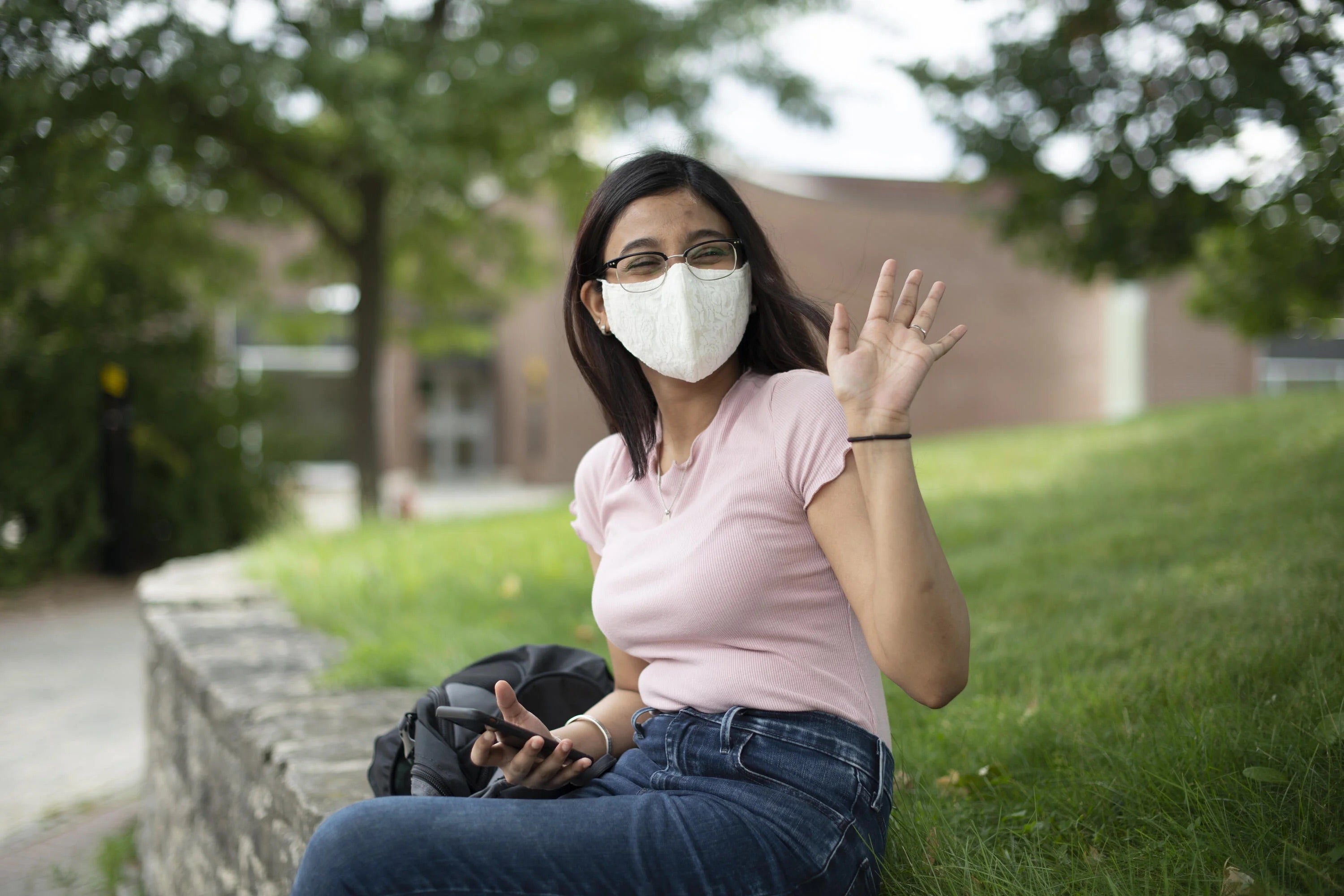
A Message from Vivek Goel, President and Vice-Chancellor and James W. E. Rush, Vice-President, Academic and Provost.
As you are aware, on March 22, the province lifted its mandatory masking requirement in most settings, with the remaining requirements in high-risk settings like health care ending on June 11. The Region of Waterloo also lifted its requirements for masking on public transportation and at customer service centres on June 11, in alignment with the province’s announcement.
On April 14, in consultation with public health advisors and other post-secondary institutions, we announced that we would extend our campus mask requirement to create a transition period past the end of the winter term and through the in-person Spring convocation ceremonies to minimize potential operational disruption under the circumstances at the time. We committed to revaluating the requirement after convocation.
Today, we’re making the decision to suspend our mask requirement after June 30. In addition to the lifting of provincial and municipal mask requirements noted above, this decision is also consistent with a variety of indicators including campus data, case counts, test positivity rates, local hospitalization and wastewater data, and consulting public health guidance.
Though the trends right now allow us to remove the requirement for everyone to wear a mask, we encourage you to continue to wear a tight-fitting, well-constructed mask if you feel it is the right choice for you, in any setting. We particularly encourage you to consider continuing to wear a mask in large gatherings like classrooms or at exams.
We’ve all seen the value of wearing a mask to help limit the spread of a variety of diseases from COVID-19 to the common cold. Wearing a mask is a good way to show you are being considerate of the people around you. Please respect the choices of others in our community who may wish to continue to wear a mask.
Physical distancing or capacity limits are not required under current public health guidance.
As always, we’ll keep this decision under careful review and we may choose to bring back a requirement to wear a mask to come to our campuses if public health conditions change.
Of course, if you have symptoms of COVID-19 or think you were exposed to the virus you should do the Ontario self-assessment to get advice on what to do and whether you should stay home.
You may have already submitted proof of vaccination prior to May 1, 2022. However, our new Campus Check-in tool utilizes the QR code on your valid Canadian or Ontario vaccination certificate.
Waterloo's St. Paul's University College to change its name
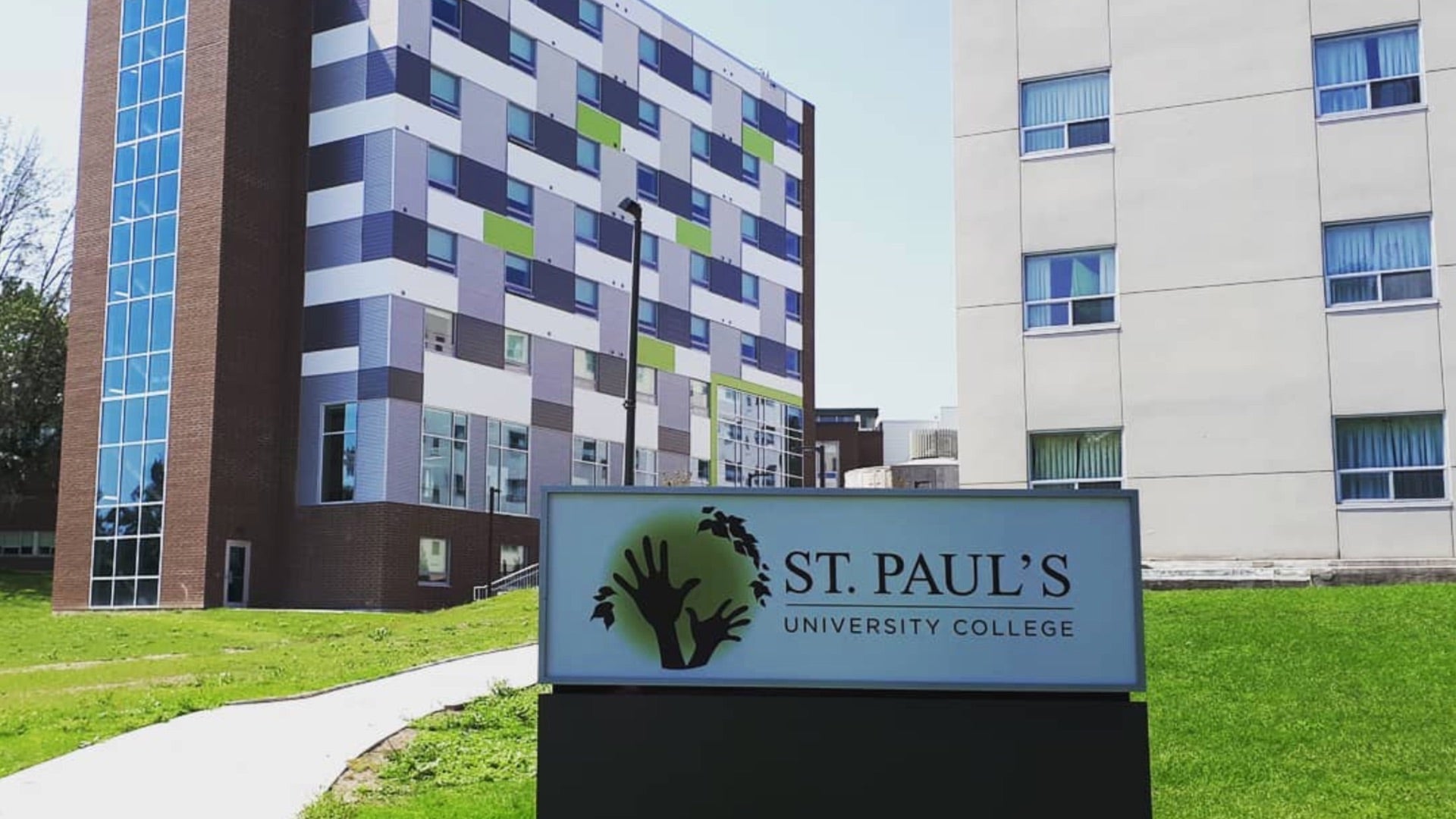
This article was originally featured on Waterloo News.
St. Paul's University College will change its name this fall to United College.
Founded by the United Church as St. Paul's United College in 1962, the college and the church agreed to end their affiliation two decades ago. At that point, the institution became St. Paul's University College.
According to Principal Richard Myers, the decision to now transition to "United College" positions the institution well for its 21st-century mission. "It's a beautiful name that speaks to the inclusive values of today's College while still honouring those responsible for its founding and early development."
The St. Paul's University College Board of Governors approved the name change during its meeting on June 16. The decision followed 12 months of discussion and consultation with key stakeholder groups. The proposal was adopted unanimously, with the name change set to be formalized on September 24 as part of the launch of an institutional re-branding.
St. Paul's is a not-for-profit, small teaching and living environment within the University of Waterloo and is located on its main campus. St. Paul's serves the Waterloo community through teaching and delivering support for Waterloo courses and providing residence to students of all Faculties. The institution also supports students in pursuing and launching new ideas for social or environmental change through the social impact incubator, GreenHouse. It also facilitates the sharing of Indigenous knowledge via the Waterloo Indigenous Student Centre.
Valuing water for our shared sustainable future
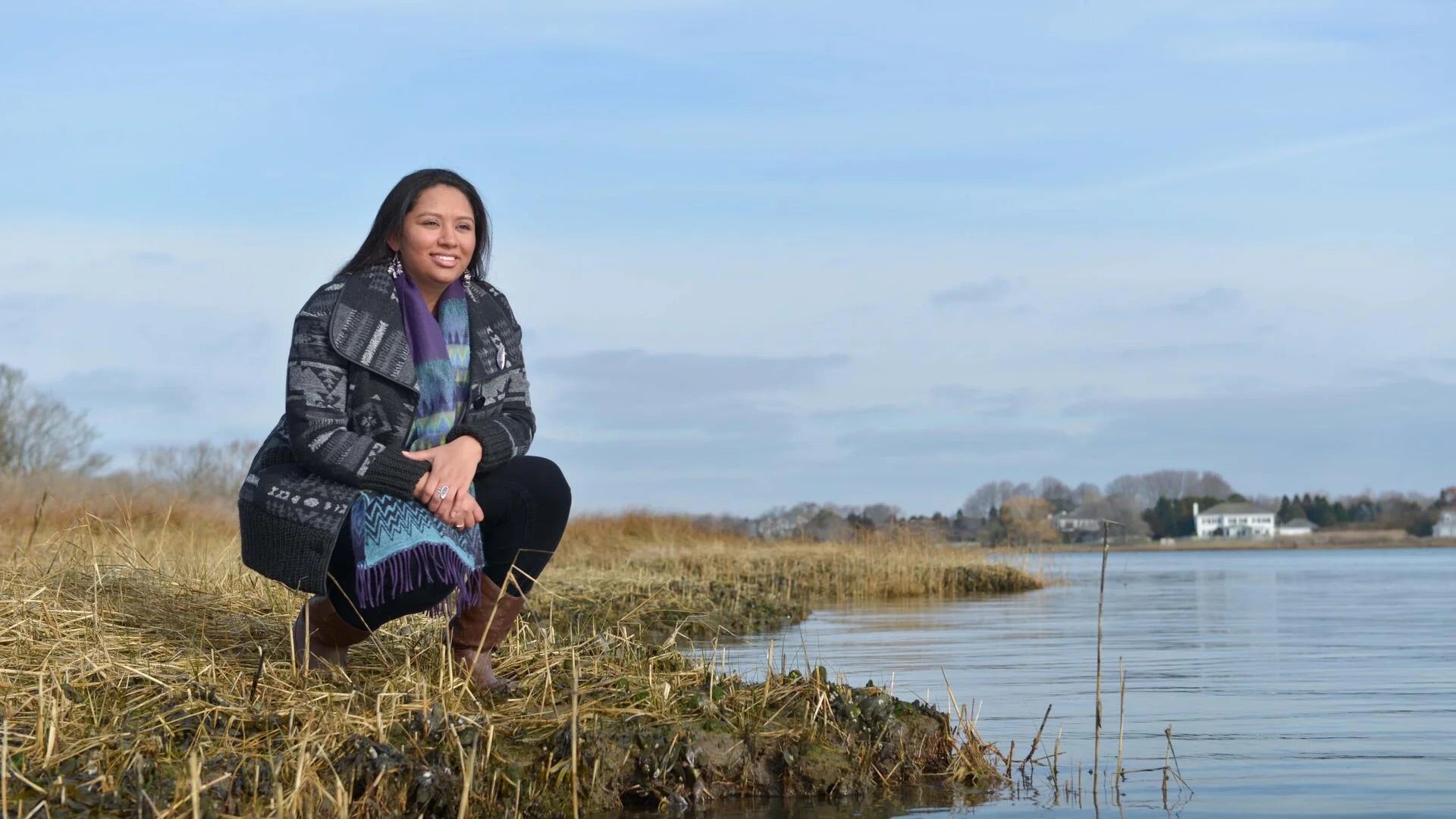
By Sam Toman. This article was originally published on Waterloo News.
Today the planet is straining under the weight of human development and governments and institutions are searching for innovative answers to protect our planet.
Thanks to efforts by researchers like Kelsey Leonard, who joined the Faculty of Environment in 2020, we're exploring and valuing essential environmental knowledge long ignored by non-Indigenous decision-makers.
Indigenous Peoples have vast knowledge systems and scientific traditions that can work alongside western scientific methods. With global warming now raising sea levels, Leonard’s position as Canada Research Chair in Indigenous Waters, Climate and Sustainability, will help her explore ways of facilitating Indigenous knowledge to restore our threatened oceans, lakes and rivers while assuring Indigenous sovereignty.
For those unsure of what exactly this entails, Leonard’s TED Talk, Why lakes and rivers should have the same rights as humans (viewed by more than 3 million people), explores how reforming our legal system can be a first step to protecting bodies of water and fundamentally transforming how we value this vital living entity.
“A big part of who I am as a scholar and a scientist is very much informed by the identity of being a water person and a person from the shore,” says Leonard who is a citizen of Shinnecock Indian Nation located on what’s commonly known as Long Island, New York.
The territory of the Shinnecock Nation sits on a peninsula jutting out into Shinnecock Bay and shares a barrier island protecting them from the Atlantic Ocean. The people of the Shinnecock Nation are skilled fishers and were traditionally whalers.
"We are also known for being wampum makers and harvesting and carving wampum used to form many treaties and we continue to cultivate the cultural practice and artistry," she says.
Co-mobilization of Indigenous and western science
Like many coastal communities along the Atlantic seashore of the United States and Canada, the Shinnecock Nation, was severely impacted by Superstorm Sandy in 2012. At the time Leonard was beginning her journey towards a law degree — which she earned in 2015 — in an effort to address many of the structural injustices embedded within the law. Such laws promote environmental racism and disproportionate climate impacts for Indigenous Peoples — including the Shinnecock — as extreme climate events continue to increase.
“My research centers around Indigenous water justice, including identifying pathways for Indigenous conservation practices to inform international water policy,” says Leonard who recently contributed her expertise to the development of the U.S. Fifth National Climate Assessment (NCA5).
Leonard represents the Shinnecock Indian Nation as a steering committee member of the Mid-Atlantic Committee of the Ocean charged with the protection and restoration of America's ocean and coasts. Her scientific and policy background led to her expert testimony on ocean-based climate solutions before the U.S. Congress as America aims to correct course and regain its prominence as a global climate leader.
“Indigenous Peoples are on the front lines of many of the world’s water security crises. The water challenges and innovations present in our communities can offer best practices for adaptation and resiliency for other communities or societies facing similar water injustices,” she says.
Indigenous Peoples have been excluded from international water management because of an intellectual inherited legacy of colonialism that fails to acknowledge Indigenous experience and expertise.
It’s something Leonard explores in her most recent report, Turtle Island (North America) Indigenous Higher Education Institutions and Environmental Sustainability Education. In it she applies a critical lens to the environmental and sustainability programs of the 38 Tribal Colleges and Universities in the United States and 26 Indigenous post-secondary institutions in Canada.
“Knowledge translation for co-mobilization of Indigenous and western science to address climate change is one of the greatest obstacles facing contemporary transboundary water governance,” she says. “In the context of the Great Lakes, pluralistic and co-existing worldviews often conflict, and shared paths for adaptive solutions are missed. For example, the language used by some western scientists and institutions in developing water governance policy in response to invasive species in the Great Lakes and elsewhere tends to be highly combative, militarized and violent. Policy and processes that emphasize eradication and hard-solutions over nature-based solutions tend to be ill-received by Indigenous Peoples and governments.”
Using Indigenous knowledge for global water challenges
What Leonard finds fascinating, and counter-intuitive to many non-Indigenous researchers, is that maybe we just haven't found the purpose of invasive species or the process by which they have now come to exist in this part of the world.
“In the context of my transboundary research in the region, Indigenous environmental leaders from the Great Lakes often shared with me the belief that every living entity on the planet has a purpose and as a human being our goal is to understand these relationships, roles and responsibilities to that other entity.”
Though her work has brought her from New York to the Grand River valley (or Kenhionhata:tie as it’s known by the Mohawk), Leonard’s focus on water justice remains local as well as global, and her advocacy unwavering.
“Indigenous science is built from vast knowledge systems that have thrived for millennia in stewardship of Turtle Island and should be the foundation of our shared sustainable future."
Tuesday's notes
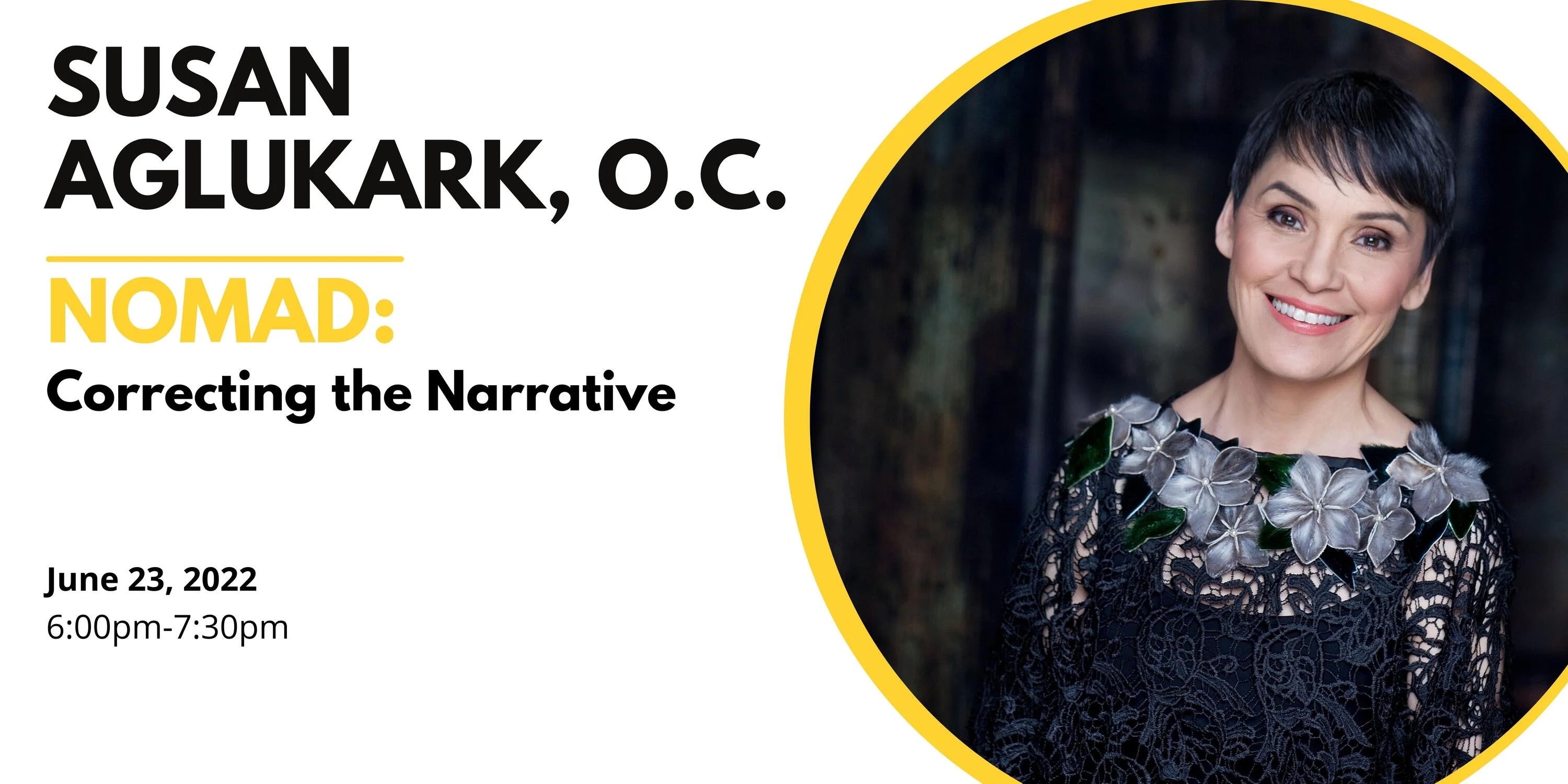
Join the Office of Indigenous Relations on Thursday, June 22 for a free webinar featuring Susan Aglukark. The event, entitled Nomad: Correcting the Narrative runs from 6:00 p.m. - 7:30 p.m. Register now.
Working with the Writing and Communication Centre gives you the space to develop the skills you need to share your knowledge with confidence. Visit us in Dana Porter library for in person drop-in appointments on Tuesday and Wednesday from 12:00 noon to 3:00 p.m. Make progress on your writing at the Hybrid Writing Cafés. Tuesday and Friday from 9:00 to 2:00 pm and Wednesday from 2:00 p.m. to 4:30 p.m. in the SLC GSA lounge and on LEARN.
Link of the day
National Indigenous Peoples Day
When and Where to get support
Students can visit the Student Success Office online for supports including academic development, international student resources, immigration consulting, leadership development, exchange and study abroad, and opportunities to get involved.
Instructors looking for targeted support for developing online components for blended learning courses, transitioning remote to fully online courses, revising current online courses, and more please visit Agile Development | Centre for Extended Learning | University of Waterloo (uwaterloo.ca).
Instructors can visit the Keep Learning website to get support on adapting their teaching and learning plans for an online environment.
Course templates are available within your course in LEARN to help you build and edit your content and assignment pages quickly.
The following workshops, webinars, and events are offered by the KL team (CTE, CEL, ITMS, LIB):
-
Scholarship of Teaching and Learning (SoTL) Methods – self-directed, continuous self-enrollment course in LEARN.
-
Independent Blended Course Design (iBlend) - self-directed, continuous self-enrollment course in LEARN.
-
Copyright Overview for Waterloo Instructors and Staff - self-directed, continuous self-enrollment course in LEARN.
-
Independent Remote Course Design Essentials (iReCoDE) - self-directed, continuous self-enrollment course in LEARN.
-
Supporting Student Mental Health (for Instructors) – self-directed, continuous self-enrollment course in LEARN.
Supports are available for employees returning to campus. Visit IST’s Hybrid Work and Technology guidelines and workplace protocols to assist with the transition.
The Writing and Communication Centre has virtual services and programs to help undergrads, grad students, postdocs and faculty members with academic writing.
- Meet with writing advisors in one-to-one appointments to brainstorm, draft, revise, and polish. No time for an appointment? Try email tutoring for undergrads.
- Beat isolation and make writing progress at weekly Virtual Writing Cafés for grad students and faculty or PJ-Friendly Writing Groups for Undergrads.
- Take an online workshop or apply to our popular Dissertation Boot Camp program.
- Faculty can request custom in-class workshops for their courses, or the WCC can facilitate any existing workshops for student groups.
- Course-integrated support available. Attention faculty and instructors: The application form for Writing and Communication Centre course-integrated support is now available online. We offer five unique support streams for your courses including synchronous and asynchronous workshops and monitored discussion boards.
Co-op students can get help finding a job and find supports to successfully work remotely, develop new skills, access wellness and career information, and contact a co-op or career advisor.
The Centre for Career Action (CCA) has services and programs to support undergrads, grad students, postdocs, alumni, and employees in figuring out what they value, what they’re good at, and how to access meaningful work, co-op, volunteer, or graduate/professional school opportunities. Questions about CCA's services? Live chat, call 519-888-4047, or stop by our front desk in the Tatham Centre 8:30 a.m. to 4:30 p.m., Monday to Friday.
Drop-in to Warrior Virtual Study Halls on Wednesdays from 5:30 p.m. to 7:00 p.m. Come together in this virtual space to set goals and work independently or in groups each week.
Renison's English Language Institute continues to offer virtual events and workshops to help students practice their English language skills.
If you feel overwhelmed or anxious and need to talk to somebody, please contact the University’s Campus Wellness services, either Health Services or Counselling Services. You can also contact the University's Centre for Mental Health Research and Treatment. Good2Talk is a post-secondary student helpline available to all students.
The Library is open with expanded hours for access to book stacks, drop-in individual study space, bookable group study rooms, drop-in access to computers and printers, book pick-up services and IST Help Desk support. Librarian consultations, Special Collections & Archives and the Geospatial Centre are available by appointment. Full details on current services and hours are available on the Library’s COVID-19 Update webpage.
The Faculty Association of the University of Waterloo (FAUW) continues to advocate for its members. Check out the FAUW blog for more information.
The University of Waterloo Staff Association (UWSA) continues to advocate for its members. Check out the UWSA blog for more information.
The Sexual Violence Prevention and Response Office (SVPRO) supports all members of the University of Waterloo campus community who have experienced, or been impacted, by sexual violence. This includes all students, staff, faculty and visitors on the main campus, the satellite campuses, and at the affiliated and federated Waterloo Institutes and Colleges. For support, email: svpro@uwaterloo.ca or visit the SVPRO website.
The Office of Indigenous Relations is a central hub that provides guidance, support, and resources to all Indigenous and non-Indigenous campus community members and oversees the University's Indigenization strategy.
The Waterloo Indigenous Student Centre, based at St. Paul’s University College, provides support and resources for Indigenous students, and educational outreach programs for the broader community, including lectures, and events.
WUSA supports for students:
Peer support - MATES, Glow Centre, RAISE, Women’s Centre - Visit https://wusa.ca/services/wusa-peer-support to book an appointment either in person or online for the Fall term.
Food Support Service food hampers are currently available from the Turnkey Desk 24/7 in the Student Life Centre. Drop off locations are also open again in SLC, DC, DP, SCH and all residences.
Co-op Connection all available online. Check https://wusa.ca for more details.
Centre for Academic Policy Support - CAPS is here to assist Waterloo undergraduates throughout their experience in navigating academic policy in the instances of filing petitions, grievances and appeals. Please contact them at caps@wusa.ca. More information is available.
WUSA Student Legal Protection Program - Seeking legal counsel can be intimidating, especially if it’s your first time facing a legal issue. The legal assistance helpline provides quick access to legal advice in any area of law, including criminal. Just call 1-833-202-4571.
Empower Me is a confidential mental health and wellness service that connects students with qualified counsellors 24/7. They can be reached at 1-833-628-5589.
GSA-UW supports for graduate students:
The Graduate Student Association (GSA-UW) supports students’ academic and social experience and promotes their well-being.
Advising and Support - The GSA advises graduate students experiencing challenges and can help with navigating university policies & filing a grievance, appeal, or petition.
Mental Health covered by the Health Plan - The GSA Health Plan now has an 80 per cent coverage rate (up to $800/year) for Mental Health Practitioners. Your plan includes coverage for psychologists, registered social workers, psychotherapists, and clinical counselors.
Dental Care - The GSA Dental Plan covers 60 to 70 per cent of your dental costs and by visiting dental professionals who are members of the Studentcare Networks, you can receive an additional 20 to 30 per cent coverage.
Student Legal Protection Program - Your GSA fees give you access to unlimited legal advice, accessible via a toll-free helpline: +1-833-202-4571. This advice covers topics including housing disputes, employment disputes, and disputes with an academic institution.
The Graduate House: Open Monday to Tuesday 11:30 a.m. to 7:00 p.m. and Wednesday to Friday 11:30 a.m. to 9:00 p.m. We’re open to all students, faculty, staff, and community members. The Graduate House is a community space run by the GSA-UW. We’re adding new items to the menu. Graduate students who paid their fees can get discounts and free coffee.
When and Where (but mostly when)
Warriors vs. Laurier Blood Donation Battle. Join our “Waterloo Warriors” team on the Blood.ca website or app. #ItsInYouToGive
WISE Public lecture, “Decarbonization Pathways and Flexibility Requirements in the Chilean Electric Power System,” by Daniel Eduardo Olivares Quero, Tuesday, June 21, 12:00 p.m. to 3:00 p.m., In-person at Davis Centre, Room # 1302, and Virtually on Zoom.
Quantum Perspectives: Communication, Tuesday, June 21, 12 noon.
Artist Talk: On the Land, Tuesday, June 21, 12:15 p.m.
Master of Taxation, Virtual Information Session, Wednesday, June 22, 5:30 p.m. To register visit www.mtax.ca.
CIHR Commercialization (CMZ) Peer Review Committee Information Session, Thursday, June 23, 12 noon to 1:30 p.m., Zoom. Speaker: Dr. Kathleen Marsman, Chair of CIHR CMZ Peer Review Committee. Registration required.
Retirement open house for Linda Beaulieu, Thursday, June 23, 12 noon to 2:00 p.m., E2-1772.
Evolutions through Graduate School and Hamiltonians, Thursday, June 23, 2:30 p.m.
Susan Aglukark: Nomad-Correcting the Narrative, Thursday, June 23, 6:00 p.m.
Entrepreneurial Ph.D. Fellowship Information Session Wednesday, June 29, 12 noon to 1:00 p.m., Conrad School or Zoom. Registration required.